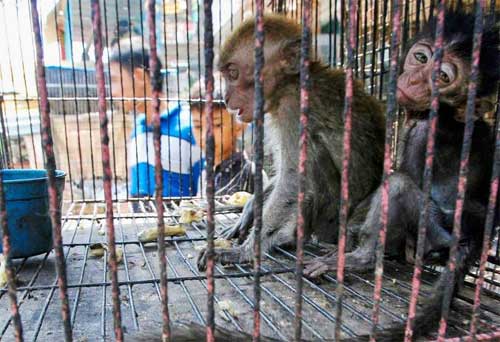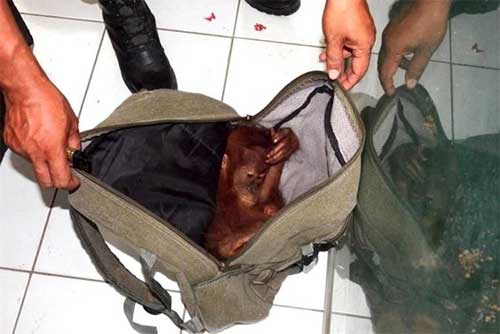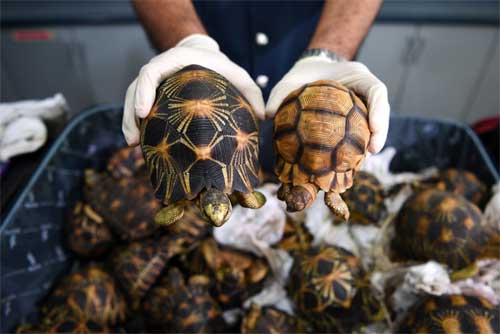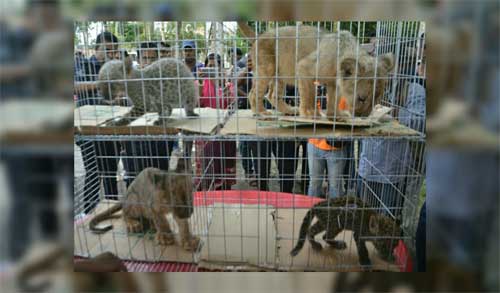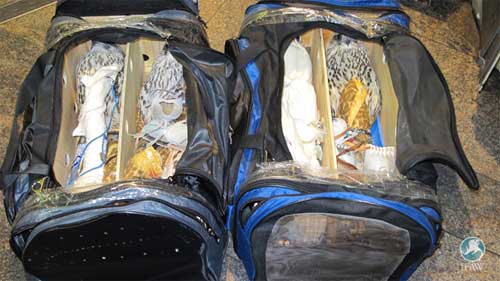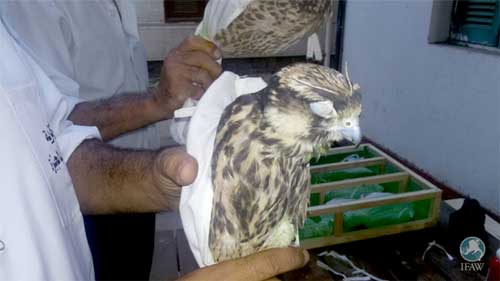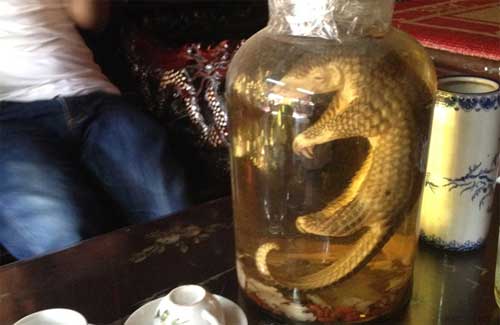What Happens During Wildlife Smuggling?
A lot of exotic wildlife comes from Countries such as Australia, Africa, and the jungles of Brazil. The laws and penalties are lax in some areas, where they are strict, they do not dissuade criminals and dealers in light of the serious money they can make from smuggling.
Trappers capture the animals in their natural habitat and take them away. Because of the illegal and criminal nature of the Industry, these animals often change hands several times e.g. transporters and exporters. The conditions in which these frightened animals are transported can be horrendous.
Image: Yellow-crested cockatoo inserted in empty water bottles for illegal trade and transport, are shown by police officials at Port of Tanjung Perak on May 4, 2015 in Surabaya, Indonesia. Source
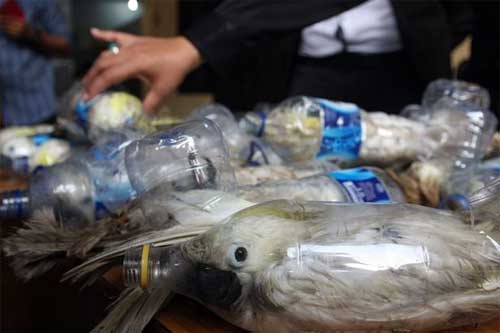
Other birds such as Parrots also have their beaks and feet taped, and be stuffed into plastic tubes so they can easily be hidden in luggage.
Baby turtles are taped in to their shells and shoved into tube socks, and infant pythons have been shipped in CD cases.
In one case, a man who was arrested at the Los Angeles airport had Asian leopard cats in a backpack, birds of paradise in additional luggage, and pygmy monkeys in his underwear. Their chances of survival? “We have a mortality of about 80 or 90 percent,” says a German customs agent. Source
Exotic animals can suffer further at the hands of dealers who sell to unscrupulous pet stores and zoos.
PETA’s undercover investigation of U.S. Global Exotics resulted in a raid of the dealer’s Arlington, Texas, warehouse and the seizure of more than 27,000 animals who had been subjected to crowded living conditions, poor ventilation, and a lack of food, water, and basic care. More than 400 iguanas (half of whom died) had been left in shipping crates for about two weeks without food or water because of a cancelled order. Hundreds of dead animals were discovered during the raid, and more than 6,000 died afterwards because they were too ill to be saved. Source.
Image: Highway police discovered 78 young parrots trapped without food or water in the backseat and trunk of a car in southeastern Brazil in 2011. Two men were fined about $5,000

Image: In India, sloth bears are taken from the wild, pierced through the muzzle, and trained to perform dances. This is a 400-year-old practice
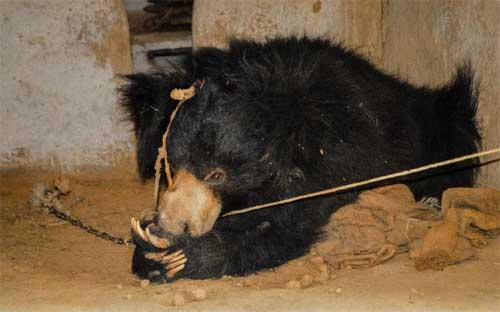
It is no surprise these animals have low survival rates and suffer from fear, anxiety, behavioural issues, hunger, thirst, discomfort, pain, injury, and disease. Transportation lone can take several weeks!
Image: A man in handcuffs crouches next to dead pangolins seized by authorities in Guangzhou, China, in 2014. Pangolins are the world’s most trafficked mammal, over-exploited for their meat and scales. Source
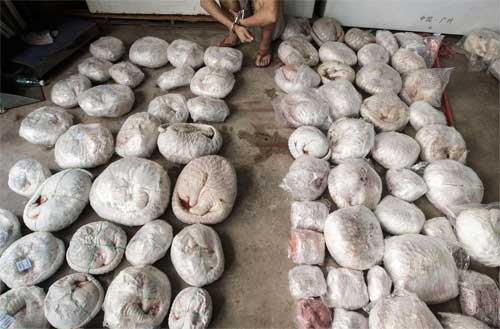
Over 300, 000 exotic/smuggled animals were confiscated on entry to the USA over the past decade. However, this does not mean that the animals have been rescued.
One case involving hundreds of sugar gliders (small marsupials endemic to Australia), were intercepted at the Schiphol airport, in Amsterdam. Not knowing what to do with the animals, Dutch authorities disposed of them, still alive, in an industrial shredder.
Another case involved a baby chimpanzee and a gorilla intercepted by Egyptian authorities in Cairo. Worried that the apes might carry Ebola, the authorities drowned them in an acid bath.
Image: A typical sugar glider. Source
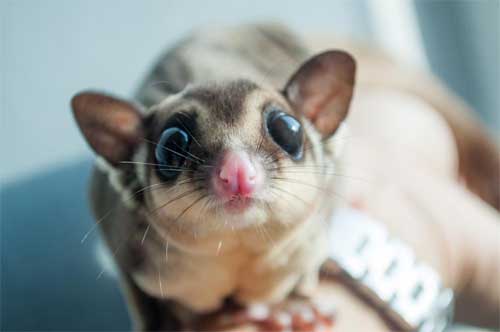
Animals ripped from their habitat suffer, of course. They are smuggled in thermoses and nylon stockings, stuffed into toilet paper tubes, hair curlers and hubcaps. At one market in Ecuador, I was offered a parakeet. I asked the seller how I would get it on an airplane. “Give it vodka and put it in your pocket,” he said. “It will be quiet.” Source
It is quite clear many animals suffer for the pleasure of others, and the consequences are devastating.
Ad:
Return To Table Of Contents
